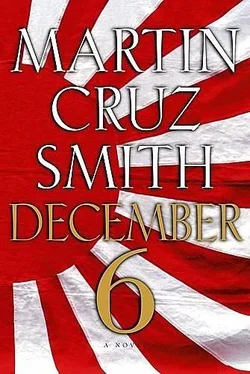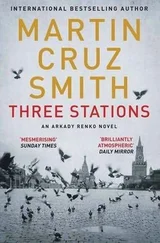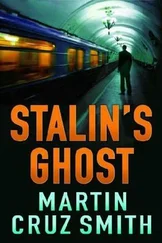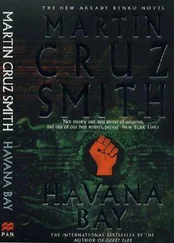“He doesn’t speak Japanese. The colonel saw this picture on the table and was amused.”
Ishigami amused? That didn’t sound pretty.
“Was he in uniform?”
“Yes.”
“Did he threaten anyone?”
“No.”
Harry was relieved at that. Sometimes soldiers busted up cafés out of patriotic fervor. Harry paid for protection from that sort of agitation, and whether he was leaving town or not, he disliked being out good money.
“As soon as he was gone, I came looking for you.”
That was pure Michiko, Harry thought. She saw no contradiction in holding a gun on him while expressing concern for his safety.
“Then nothing really happened, right?”
Her eyes narrowed, and Harry waited. He could tell she was mustering an attack on a new front. “If there’s a war, what will you do?”
“There won’t be a war.”
“If there is.”
“There won’t be.”
“If.”
A man stands on a rock in a river, and sooner or later he slips. Harry regretted his words even as they left his mouth: “I’ll tell you what I’m not going to do. I’m not going to be a sucker, a fall guy, the chump left holding the bag.”
She lowered the gun.
“Ah. That’s all I need to know.”
“Michiko, don’t take that the wrong way. That doesn’t mean I’m skipping-”
But she disappeared from the doorway.
The news that Ishigami hadn’t forgotten was unnerving. Harry had blithely assumed that no one would survive four years of leading bayonet charges on the China front, yet here he was at the Happy Paris. Ishigami, Ishigami, Ishigami. Sounded like the sweep of legs through high grass. It was like walking down through a misty valley and seeing a white kimono far behind but gaining.
Of course Harry was skipping town. Any sane person would. People expected war back in June, and now they were in December, each day like a drop of water trying to fall. The way he saw it, the Westerners trapped in Tokyo were there for a reason. They could have gotten out earlier, but they were grown-ups who had made decisions to stick by their Japanese investments or their Japanese wives. Missionaries wanted to scoop a few more souls. DeGeorge wanted one more Pulitzer. If they were counting on Harry to be their weather vane, forget it. Three more days and there would be no Harry Niles in Tokyo or its vicinity. That was the purpose of his talk at the Chrysanthemum Club, not just to massage an audience of bankers but to earn a million-dollar ticket out of Tokyo. It was a matter of playing his cards in the right order at the right time. He didn’t like the news that Ishigami was in uniform, which probably included a sidearm and sword, but he remembered what the poet said: “I went into my bath a pessimist and came out an optimist.” All he had to do was dodge the colonel for two days, and then it was clear sailing.
Wrapped in a light kimono, Harry wandered with his glass into the living room, which was dark, bedding spread on the floor. Michiko was tucked under the quilt, the gun in her hand. He felt like he was defanging her by easing the gun from her fingers. She stirred, moving her head in dreamy motion.
He had literally run into her when they met, Harry at the wheel of his car, Michiko bloody from a crackdown on the last Reds in Tokyo, a police sweep that scattered the comrades over rooftops and down alleys. Harry had pulled Michiko into the car and driven off, the first in a series of impulsive decisions he regretted, such as taking her home, patching her head, letting her stay the night. She left in the morning and returned a week later, her hair hacked short, with a pack containing a prayer wheel and the works of Marx and Engels. She stayed another night and another and never left Harry’s for good; that was two years ago. If he’d left her on the street, if he’d given her over to the police, if he hadn’t fed her the morning after he’d rescued her. That was probably the worst mistake of all, the fatal bowl of miso. If he’d just returned her silence when she left instead of asking whether she liked Western music. Gratitude was always a dicey issue in Japan; the very word arigato meant both “thank you” and “you have placed a sickening obligation on me.” When she returned, she presented him with an Ellington record. What was interesting was that it was one of the few Ellington albums he didn’t own, which suggested the possibility that in the middle of the night, her head bandaged, she had searched his apartment while he slept. Besides admitting she was a Red, she told him nothing about her past. Never did. Harry had seen others like her, tough girls from the mills who organized unions in spite of the owners and police, who got their education from night school rather than Tokyo Women’s College and read Red Flag instead of Housewife’s Friend. Men, when they went to prison for radical activities, got religion and dedicated their confessions to the emperor. Women like Michiko hanged themselves in their cells rather than give their keepers an inch of satisfaction. Harry had gotten her into the chorus line at the Folies, but she was too argumentative for management, so when the war scare chased his American musicians from the Happy Paris to Hawaii, he replaced them by making her the enigmatic and, apart from lyrics, silent Record Girl.
He heard a scraping outside. The club’s neon sign was off, but in the haze of the street-lamp Harry saw the discreet gate of the willow house directly across from the Happy Paris. A willow house was an establishment where geishas entertained. Harry was no fan of geisha parties, but he occasionally hung out in a back room across the street just to escape DeGeorge, if nothing else. A cart with metal-rimmed wheels went by, the nocturnal visit of the night-soil man visiting homes without plumbing, gathering what kept the rice fields fertile, the cycle of life at its most basic. The cart moved aside to let pass a van with the crossed poles and looped wires of a radio direction finder on the roof. The van sifted the air for illegal transmissions the way a boat night-trolled for squid. Or, Harry speculated, if the van was from the Thought Police, perhaps they were trying to sift dangerous ideas out of the air. They typically liked to raid suspects around three in the morning, but this time they seemed to be just passing through. The surveillance usually annoyed Harry, but with Ishigami on the prowl, the added security was welcome. Anyway, in one week, two at the most, Harry would be in the States. He saw himself driving down Wilshire, having that first martini at the Mexican place around the corner from Paramount where they stuffed the olives with chili peppers. He could taste it.
When Harry left the window and approached the bed again, he saw that Michiko had moved the quilt aside in her sleep. The looseness of an underkimono made her limbs ghostly thin, half submerged in silk. Wouldn’t it be a relief to be with an American girl, a big blonde built for a convertible? He knelt and, with no more pressure than the weight of the air, ran his fingertips around the base of her thumb and up her arm to the warmth and soft hair in the hollow under her arm, then along her collarbone to the line of her cheek as if committing to memory her shape and smoothness, a calligrapher writing in the dark.
THE THEATER’S DRESSING ROOM was an entry to a new world for young Harry Niles. He and Gen ran errands for singers, dancers, musicians, comedians and magicians, fetching cigarettes, beer by the case, cough syrup for the codeine. Vitamin B was the rage. Soon Oharu would let no one but Harry give her injections. She twisted in her chair, offering her soft, smooth bottom.
Harry’s guide to this new Japan was the artist Kato. With his French beret, color-stained fingers and silver-headed walking stick, Kato cut a consumptive, sophisticated figure. Looking back, Harry realized that Kato must have been only in his twenties at the time, but he was the first person Harry met who had actually been to France and seemed to know about the world. Harry’s father, the pastor Roger Niles, knew about heaven and hell but not so much about the here and now. In turn, Kato took an interest in Harry the way a man might adopt a monkey. The idea that a gaijin could speak like a Japanese, eat like a Japanese and shoplift cigarettes like a born thief entertained Kato on a philosophical level, and the fact that Harry was a missionary’s son amused him enormously.
Читать дальше










